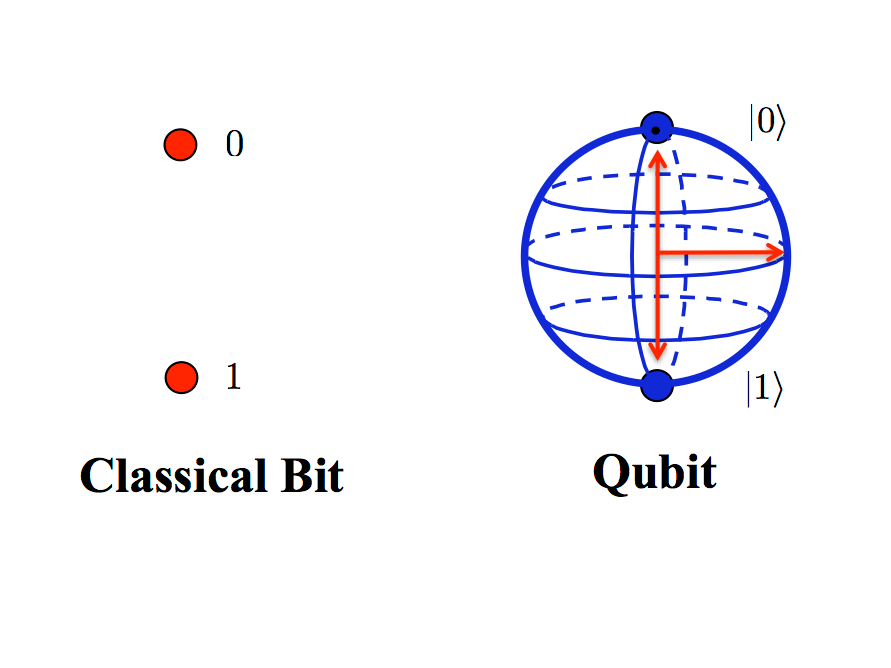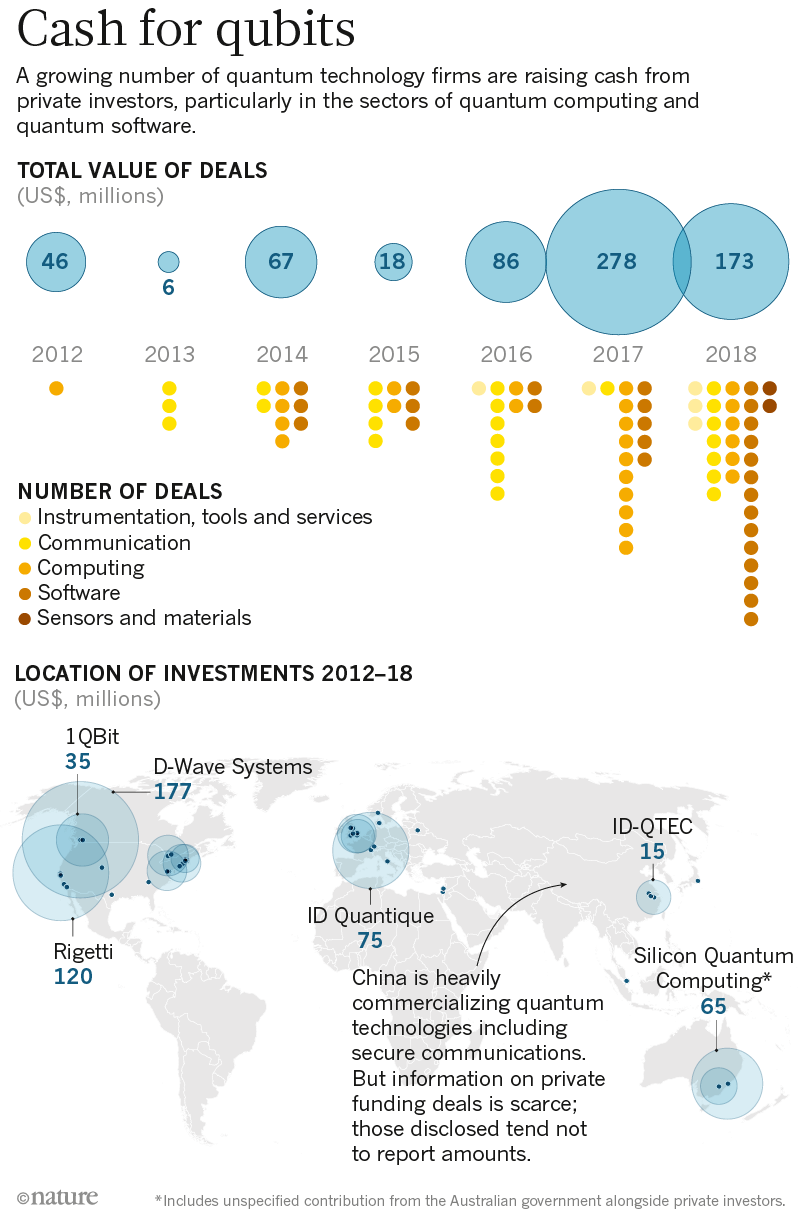From EE Times, October 26:
Quantum technology comprises quantum computing, quantum cryptography, quantum networking (the Quantum Internet) and quantum sensors. All of these sectors of quantum technology are already generating revenues today. Apart from quantum sensors, all are interrelated in important ways, with the prospect of commercial quantum computing driving much of the investment in the emerging quantum technology market. Quantum sensors use the sensitivity of quantum devices to increase the effectiveness of medical imagining, global positioning and other applications. They are real and with us today, but I won’t have much to say about them in this article
Quantum Computing: State of Play
As recently as two years ago articles were appearing from serious critics saying that quantum computers weren’t buildable in practice. Today, much of that skepticism has dissipated; tier-one firms are investing in quantum computing.Quantum computers or their components/access networks have already been developed by Alibaba, Amazon, IBM, Microsoft, Google, Honeywell, and Intel. Also playing in this market are well-funded newer companies such as Rigetti, ionQ and D-Wave.
The involvement of household names like IBM, Google or Amazon not only adds credibility to quantum computing but also spreads its fame. With such firms involved in this market, it is easy to get quantum computers onto the home pages of news outlets that ordinarily don’t cover advanced physics or supercomputing.
How quantum computers work and the applications they can solve:
This seems like a good place to attempt an explanation of how a quantum computer works. A full explanation is well beyond the scope of this article, but suffice it to say that quantum computers perform calculations based on the probability of an object’s quantum state before it is measured. This is compared to what a classical computer does — calculated on the basis of deterministic 1s or 0s.
At the practical level, this translates into quantum computers being able to process orders of magnitude more information than classical computers can in the same period of time. So quantum computers embody a promise that quantum computers can solve problems that classical problems cannot solve in a reasonable time period.
Although quantum computers are already in use, there is some agreement that there are, as yet, no practical problems that can be solved by a quantum computer that cannot be solved by a classical computer. This is a very controversial issue – but this so-called quantum advantage has supposedly been demonstrated for classes of theoretical problems. The areas where quantum computers have been found to be especially useful to date have been in optimization programs, artificial intelligence, and machine learning, and in simulation.
None of this is intended to imply that progress in quantum computing technology will be easy. While the capacity of quantum computers is measured in qubits (not bits like classical computers), the quality of the qubits is also important. It is difficult to maintain the quantum states of qubits as they are prone to quantum decoherence. Quantum computers require significant error correction since they are more prone to errors than classical computers.
Some of the firms mentioned above are making quantum hardware and selling them to end-users. Some are selling access to their computers over a dedicated cloud, making the otherwise enormously expensive quantum computers ($10 million -$15 million) accessible to thousands of users. There is also a slew of companies (including Intel) that are developing processors for future quantum computers.
Banks, Investment and Quanta
Probably the biggest markets for quantum computers in the past few years have been R&D and government (including the military and the intelligence community). This is typical of new computing products. But in the view of Inside Quantum Technology, the market where we think quantum computing will first find big commercial success (the “killer app” for quantum computing?) is in the financial services sector (banks, insurance companies, investment firms, etc.)....
....MUCH MORE




